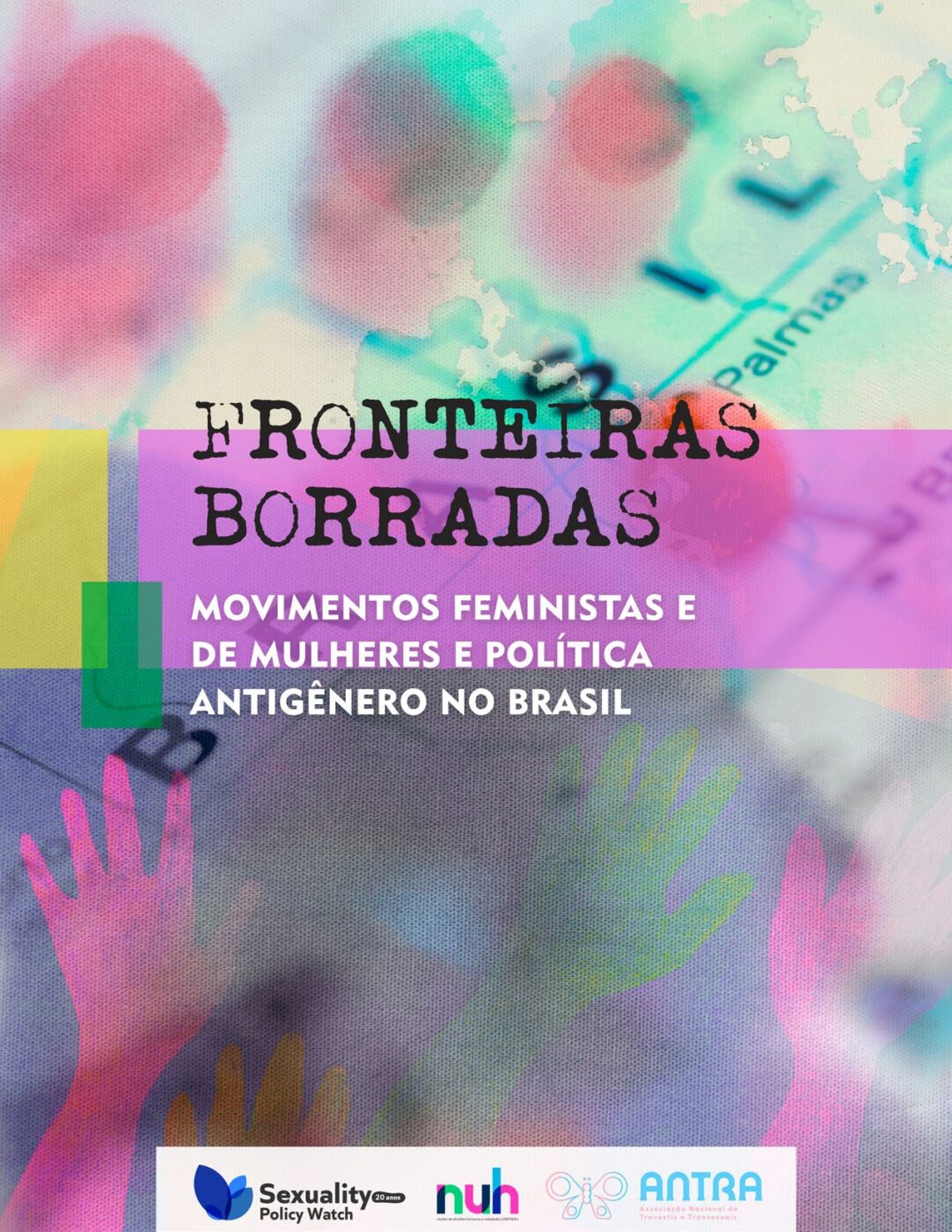
The Sexuality Policy Watch (SPW), the Center for LGBT+ Human Rights and Citizenship at the Federal University of Minas Gerais (NUH/UFMG), and the National Association of Travestis and Transsexuals (ANTRA) have released the research report “Blurred Boundaries: Feminist and Women’s Movements and Anti-Gender Politics in Brazil,” which is also supported by Ação Educativa, Cladem Brasil, Criola, Ipas Brasil, and the Nem Presa Nem Morta campaign. At the moment, the report is only available in Portuguese. However, we are working on translations for next year.
The study examines where they come from, who they are, where the Brazilian anti-gender/transphobic/essentialist feminist currents are, and how they situate themselves and act in the broader political scenario of de-democratization, growth, and consolidation of ultra-conservatism and the far-right in the country.
This mapping also explores the immersion and interaction of these currents in the broader feminist universe and their confluence with national and transnational far-right actors, based on anti-trans actions. It analyzes the historical background, the strategies adopted by these feminist currents, their reach in terms of political articulation, and their effects on feminist and LGBTQIA+ rights struggles and, more specifically, their impacts on the rights of trans people, the primary target of these groups.
Combining multiple methodologies—literature review, social network analysis, and interviews—the research reports that, although the anti-trans discourse propagated by these currents is not exactly new, its presence and influence have reached new heights in Brazil since Bolsonaro’s electoral defeat in 2022. The effects of this amplification have been harmful, demanding firm responses from inclusive feminisms and the broader progressive field in the areas of human rights, academia, the media, and even the political-institutional sphere. For this reason, the report emphasizes the urgency of clarifying the blurring of boundaries and the confusion caused by the semantics and actions of these movements, to broaden knowledge about their activities and the effects of anti-trans policies. Above all, it is essential to foster positions of distance and qualified criticism regarding gender and gender identity.
Blurred boundaries
The study traces a chronology of the presence and actions of essentialist feminist movements in Brazil since 2013, when the ultra-conservative camp launched its first large-scale offensive, targeting gender in education. This reconstruction shows that, starting in 2015, these currents gained ground as leaders of campaigns against the Parental Alienation Law, whose effects fall on poorer women. At this intersection, the appeal for “maternal rights” would fertilize exchanges and collaboration with political actors from the ultra-conservative and ultra-right. Furthermore, during the Bolsonaro era, some collectives and figures in this field gained legitimacy before state authorities. But it was very clearly after Bolsonaro’s defeat in 2022 that this field became more consolidated and adopted more apparent institutional contours.
At the heart of the study is a social network analysis that unravels the tangled web that makes up the essentialist feminist field, identifying not only tangible connections across the political spectrum from left to far right, but also the blurring of boundaries that this produces, especially in the world of feminism. Despite this ambiguity, the study identified a growing shift toward the right of the spectrum, as well as a core of figures and collectives that both serve as pivots between the extremes and lead connections to the far-right clusters that make up the map.
On the other hand, interviews with activists and academics provide consistent evidence of the deleterious effects of the increased presence and consolidation of these currents, both in terms of the “confusionism” they incite and, above all, because they have activated deep layers of transphobia in feminism, left-wing circles, and society itself. Finally, the study also presents two case studies that are highly illustrative of the issues, tensions, and impacts highlighted in the previous sections. The first examined the systematic attacks made by essentialist currents on the Ministry of Women since its re-creation in January 2023. The second reconstructs the dynamics surrounding the announced mission of the UN Special Rapporteur on Violence Against Women and Girls and its subsequent postponement, particularly concerning the rapporteur’s links to the field under research.
